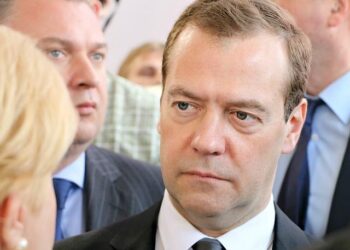Denmark’s Energy Policy Evolution: Reevaluating Nuclear Power
In a pivotal development for Denmark’s energy framework, the government has embarked on a thorough review of its longstanding ban on nuclear energy. This initiative is driven by increasing concerns over energy security and climate change, prompting policymakers to explore all potential options for diversifying the nation‚Äôs energy portfolio. As Europe grapples with geopolitical tensions and fluctuating energy prices, Denmark‚Äôs reconsideration of nuclear power could signify a transformative shift in its commitment to enduring energy production. The upcoming assessment will delve into both the benefits and drawbacks of nuclear power, possibly positioning Denmark as a frontrunner in regional dialogues about integrating nuclear energy into cleaner alternatives.
Denmark’s Nuclear Energy Discourse: Evaluating Environmental Benefits and Safety Concerns
The discussion surrounding the potential lifting of Denmark’s nuclear power ban has ignited vigorous debates among legislators, environmental advocates, and citizens alike. Proponents argue that reintroducing nuclear power could play a crucial role in meeting national climate goals. They emphasize that nuclear energy serves as a low-emission resource, substantially reducing Denmark‚Äôs reliance on fossil fuels while bolstering overall energy security. Moreover, advancements in technology have led to modern reactors being equipped with enhanced safety features, which may mitigate some historical concerns associated with this form of power generation.
<pConversely,opponents raise valid safety issues stemming from past nuclear disasters that have deeply influenced public opinion. While such incidents are statistically infrequent, the risk of catastrophic failures remains a contentious topic. Additionally, there are considerable environmental challenges linked to the management of radioactive waste, which poses ongoing difficulties that might overshadow the advantages offered by cleaner electricity generation methods. As Denmark navigates these complex matters, it is vital for policymakers not only to assess economic viability but also to address widespread socio-political apprehensions, necessitating an inclusive public dialog for informed decision-making.
| Advantages of Nuclear Power | Disadvantages of Nuclear Power | ||
|---|---|---|---|
| Low carbon emissions | Potential accident risks | ||
| Increased energy independence | < | Difficulties related to radioactive waste management | < |
Economic Analysis: The Impact of Nuclear Power on Denmark’s Energy Landscape
The Danish government’s consideration regarding the repeal of its ban on nuclear power opens avenues for notable economic transformations within its energy sector.By incorporating nuclear options into its strategy,Danish authorities could bolster resilience against price volatility while reducing dependence on imported fossil fuels.Main potential benefits include:
- Stable Pricing:Nuclear facilities can provide consistent electricity supply patterns which may help stabilize market prices.
- Create Job Opportunities:The construction and operational phases associated with new plants could generate thousands of jobs‚ÄĒoffering an economic boost at local levels.
- Lessen Greenhouse Gas Emissions:A transition towards utilizing more nuclear resources might lead to substantial reductions in greenhouse gas outputs‚ÄĒsupporting national climate objectives.
This said; it is crucial also to carefully consider possible downsides.The capital-intensive nature inherent within such projects often requires significant initial investments along with lengthy timelines needed for construction approvals‚ÄĒplacing pressure upon national finances.Additionally,the public perception regarding safety risks alongside waste management issues might influence market conditions as well as regulatory frameworks.The table below summarizes keypros and consof integrating this formofenergy:
| >Pros< | < | >Cons< | << |
|---|---|---|---|
| >Reduced relianceon fossilfuels<< | << | >High initial costs<< | << |
| >Job creation duringconstructionandoperation<< | << | >Publicconcernsaboutsafety<< | << |
Developing A Comprehensive Framework: Emphasizing Safety And Sustainability In Nuclear Policy Decisions
If indeedtheDanish government decidesupon liftingitsnucleartheban,itbecomesimperativethatanyresultantpoliciesaregroundedinastructurethatemphasizesbothsafetyandsustainability.Thisbalancedmethodologyshouldincorporatedetailedriskassessments,strong>,ensuringthatbothimmediateandlong-termconsequencesassociatedwithnuclearthetechnologyarecarefullyscrutinized.Keyconsiderationsinclude:
- EnvironmentalConsequences:Assessinglifecycleemissionsandpotentialecologicaleffectsfromnuclearsites.
- PublicHealthAndSafety:Conductingcomprehensiveevaluationsregardingrisksfacingcommunitiesincludingemergencyresponseplans.
- WasteManagementStrategies:Investigatingpractical,long-termapproachesforsafedisposalofradioactivewaste.
- EnergyIndependence:EvaluatinghownuclearnetworkscanenhanceDenmark’sself-reliancewhilecontributingtooverallrenewableenergygoals.
Pursuing these considerations,promotingpublicacceptanceis vital.Clearcommunicationregardingbenefitsandrisksofthisformofenergycanfacilitateunderstandingamongstakeholders.Involvinglocalcommunitiesandenvironmentalgroupsinthisdialoguewillbeessential.To support this effort,thegovernmentmightestablishacitizenadvisoryboardtoencourageinputfromvariousperspectives.Apreliminaryframeworkforongoingevaluationscouldlooklike:this:
EVALUATION AREA <th KEY QUESTIONS <th STAKEHOLDER INVOLVEMENT SURVEILLANCE PROTOCOLS <td WHAT ARE THE LATEST TECHNOLOGICAL ADVANCEMENTS IN PLANT SAFETY?
<TD INDUSTRY EXPERTS ENVIRONMENTAL NGOS<td COMMUNITY IMPACTS
<td HOW WILL LOCAL COMMUNITIES BE AFFECTED ECONOMICALLY AND SOCIALLY?
<TD LOCAL RESIDENTS COMMUNITY LEADERS<td REGULATORY COMPLIANCE
<td WHAT REGULATIONS WILL GOVERN NUCLEAR OPERATIONS?Final Thoughts h 1 =
In conclusion,the Danish government’s initiative toward analyzingthepossibilityofliftingthenuclearnationbanrepresentsasignificantmomentinthenation‚Äôsevolutionaryjourneytowardsenergysustainability.AsDenmarkstrivesfortheachievementoftargetedclimateobjectives,navigatingthroughoptionssuchasnuclearmayprovidevaluablecomplementstoexistingrenewableinvestments.Stakeholdersacrossalllevelswillremainattentiveastheanalysisprogresses,givenitspotentialtoreshapeDenmark‚Äô senergeticlandscapeandinfluencebroaderdebatesontheimportanceofnuclearnaturallyaddressingclimatechange.Theoutcomeoftheevaluationcouldnotonlyimpactnationalindependencebutalsoactasaprecursorforothercountriesfacingparallelsituations.Asdiscussionscontinue,theimplicationsforenergystrategy,sustainablepractices,andpublicperceptionwillbecriticalareasoffocusinthemomentsahead.
- PublicHealthAndSafety:Conductingcomprehensiveevaluationsregardingrisksfacingcommunitiesincludingemergencyresponseplans.
















